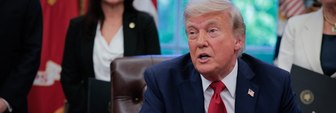Only a few days remain until the Republican National Convention and the official kick-off to the 2012 presidential election. All year we have watched the candidates campaign and finally we have two nominees and a sprint to the finish.
It seems like a good time to take stock of where we are in the 2012 campaign and how we got here. John Sides (George Washington University) and I have been analyzing mountains of polling and media data from YouGov and General Sentiment and we’ve packaged all our observations about the 2012 election into The Gamble: Choice and Chance in the 2012 Presidential Election, a portion of which is available today in two e-chapters. These preview chapters are available in electronic format (at no cost) from various e-book retailers or from the Princeton University Press website.
So … on the eve of the first nominating convention, where does the race stand? Can Barack Obama survive the campaign given the state of the nation’s economy?
Our data in The Gamble suggest that although the economy may be growing slowly, it is growing – and historically speaking, incumbent presidents in growing economies, even slow-growing ones, are hard to beat. Our model predicts an Obama victory in the fall given the state of the economy and his approval ratings to date.
In fact, we argue in The Gamble, that Obama is actually more popular than he should be given the state of the economy. See the figure below from The Gamble’s chapter called “The Hand You’re Dealt.”
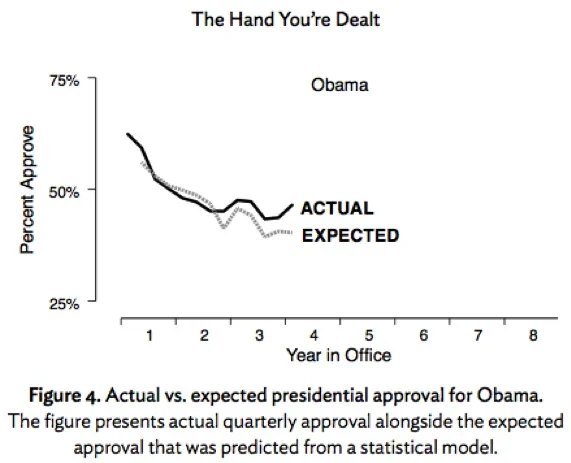
Three things explain Obama’s popularity. First of all, Democrats and independents are giving Obama more support than his economy warrants. Presumably, this is because they find him so generally likeable; which brings us to the second thing: people like President Obama; they find him “warm and friendly” and they think he “cares about people” like them. Seventy-one percent of people found the president warm and friendly as opposed to cold and aloof in a January poll by the Pew Research Center – and even half of Republicans thought this! Finally, more people blame George Bush for the economic turmoil Obama inherited and give Obama a pass on accountability for the slow recovery. These things coupled with a growing economy (even a slow one) make Obama hard to beat.
Hard to beat – yes, but impossible to beat? No. Can Mitt Romney steal this election away from an incumbent president in a slowly recovering economy? Sure. To do so he will need support from the party’s base and a strong showing among independents. How likely is that?
In The Gamble’s chapter on the run-up to the primaries, “Random, or Romney?,” we show that Romney was popular going in to 2012 and remained popular all along. The idea that the party was searching for “anyone but Romney” is a myth – and an artifact of the journalistic incentive to cover the things that are moving at the expense of the things that stand still. After all, a reporter cannot write the same story every day. It would have been a mighty boring primary season if the newspapers printed daily stories about Romney’s marked advantage in fundraising and endorsements – but that was the reality. Take a look at where things stood in December of 2011 going in to the Iowa Caucus.
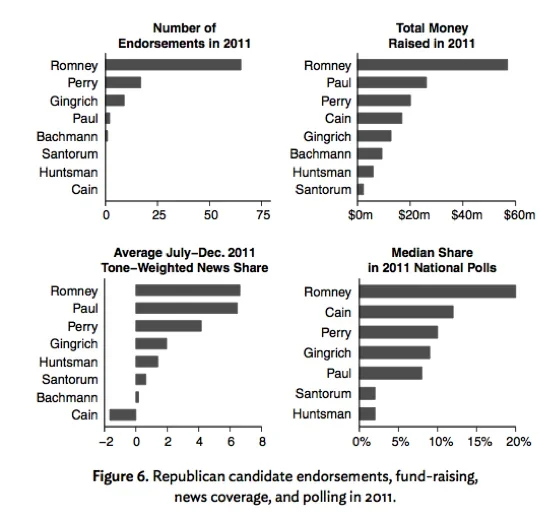
Romney had more endorsements than any of the other GOP candidates, he raised more money, he had more positive news coverage than any other candidate, and he received more news coverage in total than any other candidate in the race. He was the dead-on front runner.
Romney was also ahead in terms of public opinion in December of 2011. More likely Republican primary voters had favorable opinions of Romney than of any other GOP contender. On average, the party was embracing Romney going into the Iowa caucus.
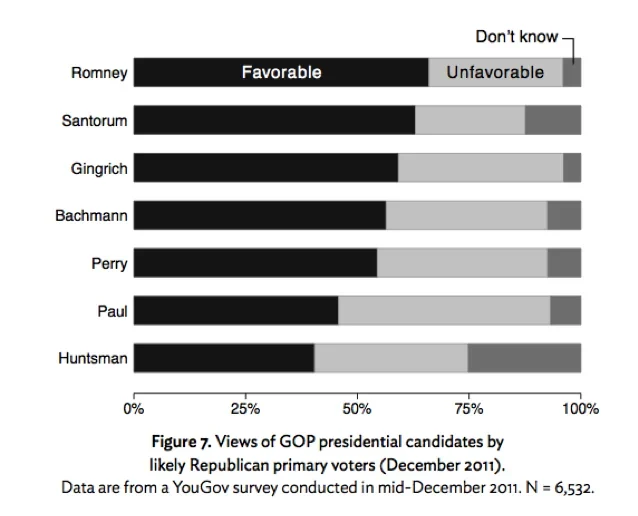
Furthermore, Romney was never disliked by the party base, despite reports of the contrary. In fact, nearly all segments of the party recognized Romney as the frontrunner and had high opinions of him. This is probably why the nomination of Paul Ryan as a running mate has not helped Romney in the polls – the group that Ryan is meant to court already liked Romney well-enough.
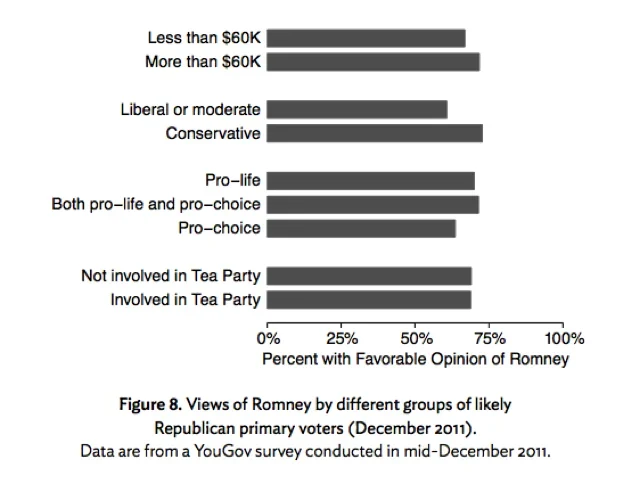
So as we launch the official start of the 2012 campaign, we’ve got an incumbent president who people genuinely like and who is outperforming his economy and a challenger who people see as less likeable, but whose party is rallying around. To take this election away from the incumbent, Mitt Romney has to win over moderates and independents. As his convention unfolds, will it focus on courting the political middle or rallying the base of the party? Stay tuned.








